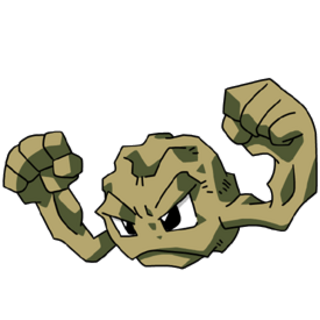This part of Indiana I live in is pretty flat. Dull, right? So I figure, why not have a volcano? Now… I get my magic drill machine that can drill as deep as I want it to drill.
If I drill a deep enough hole, say through the crust of the Earth, will it turn into a volcano?
That could actually work, since the hot material has a lower density and will thus be pushed out. But the hole needs to be somewhat big, since it will just solidify on the way up otherwise. So maybe 100 meter diameter?
Probably still won’t work unless there is serious overpressure in the area from some dynamic loading in the mantle. First off, no part of the mantle is naturally fluid at depth. The closest is the asthenosphere, at around 200 to 400 kn depth. This is still solid, but more like a soft wax. That too, the material is made of peroxides and has a density of between 5 to 15 percent higher than the granitic crust at depth and limestone that makes up the shallower crust of Indiana. Thus, it would be analogous to a whole in a wooden plank floating on a sea of dense soft wax…the wax won’t likely push through.
However, if you add water to the system while maintaining the heat, you can start to fluidize the gooey rock, and eventually it will reduce density enough to start creeping upwards. If you mix it deep enough and we’ll enough, you can start creating small steam bubbles within that will continue to grow as the rock ascends, further increasing the pressure (like a bubbly bottle of champagne). This will drive further upward pressures allowing for a surface eruption and formation of a volcano.
Source: am geophysicist and play(work) on volcanoes…just not in Indiana
deleted by creator
Yes, otherwise it is only sparkling lava.
You wouldn’t have much work here. Thanks for the expert information, I appreciate it!
If the lower layers are denser despite their much higher temperature and also super viscous, how can volcanos ever form? What if we drill right through this area with an even later size hole? In this caw tho, note that all of the back-pressure is missing at the hole, so gases would violently went to escape (10’000s of bar vs. 1 bar), which should be plenty of driving force to get stuff above the ground. Due to the outgassing the density should also massively decrease. Kind of like lowering a pipe into a volcanic lake that has CO2 dissolved in the deeper layers and letting that vent in a fountain.
you can start creating small steam bubbles within that will continue to grow as the rock ascends, further increasing the pressure (like a bubbly bottle of champagne).
Note that the pressure would go down, not up, as it ascends. But the volume would go up because of the lower pressure.
Still would be quite difficult. We think about 90% of accessing magma never makes it to the surface simply because it loses overpressure. It mostly comes down to how vicious the mama is and what it’s overall volatile content. All is which is dependent on the magma temperature, access to water, and silicate composition.
It’ll get more complex than that. I’m no expert, but I’m guessing you have to consider the depth of the crust at your location, type of soil and the distance from (and time since) the last closest volcanic eruption, possibly distance from the nearest tectonic boundary, maybe even tidal forces (assuming they have a considerable impact on magma being pushed out, but this may be a bit too far)
The closest eruption was the snag point I was thinking. We’re relatively near a fault line, but I don’t know of any volcanoes for a very, very long distance.
Of you’re talking new Madrid fault line in southern Illinois then you’re kinda close but a couple hundred-ish miles away even if you’re in Evansville Indiana area. I think the closest volcano is in Washington state to us.
Please don’t make a volcano in southern Indiana, my family in southern Illinois probably won’t enjoy being between a volcano and a major tectonic fault both lol
Edit: just to antagonize any Spaniards reading this, we don’t pronounce muh-drid like it should be, we say mad-rid here in southern Illinois. Fun stuff, idk why we screw it and Cairo both up
You don’t even want to know how people pronounce Terre Haute where I live.
Tear-ra hoe-te
Think I did that right but not sure on how to spell out how we say haute in a southern Illinois accent.
If you’re a Hoosier from south of Indianapolis then we likely speak very similarly
I hear “Terr Hoot” all the time. Why “hoot?” I have no idea.
Ah that one is different then
Oddly it’s the same in New Mexico, where people should know better. There’s a town between Santa Fe and Albuquerque called New MAD-rid.
Even worse since some level of Spanish should be understood by most everyone in the southwest lol
It was a mining town, so I thought that probably it was named/renamed by non-Hispanic Europeans. But why would they call it Madrid? So I have no idea.
Interesting. That’s not that big a diameter all things considered.
Instead of drilling a hole, another way to do it is to slam an asteroid on the other side of the planet.
https://earthsky.org/earth/dinosaur-killing-asteroid-caused-indias-deccan-traps/
Wow!
This region is thought to have been the site of extremely powerful volcanic activity in the past, so powerful that it caused mile-deep lava over an area as large as the state of California.
By Richards’ estimate, the asteroid impact must have generated the equivalent of a magnitude 9 or larger earthquake everywhere on Earth
Mind-blowing stuff! Thanks for sharing!
Earth-shattering even!
Daaaad!
Besides the earthquake, there was also a literal rain of fire across the planet, like a blast furnace, that likely killed everything that wasn’t underground or underwater.
I made a volcano in elementary school using paper mache, baking soda and vinegar. Just do that. But bigger.
this is a great idea for mark rober
I have some good news for you: https://www.youtube.com/watch?v=e09xig209cQ
Other posters have answered beautifully but if you ask Randall Munro you might get an illustrated guide.
That would be awesome, but I imagine there’s a long line ahead of me.
…are you in some sort of rush to get this done?
Would be a fun surprise in a few years when he gets around to it!
Good point.
Is What If? still running? Last time I tried looking, it wasn’t. Someone on the forum said that he was working for a newspaper or magazine, and the images were being published there. Typically, it was not available outside the US.
Oh no! I had no idea. Good for him tho
I’ve just had a look to see if there’s anything on the site about it, and I don’t recognise the latest few comics. I can’t tell if they’re new, or I just don’t remember them though, and there’s no date on the mobile site.
There may be hope! :D
The comic is still running
Fantastic 😁
The Red Mars series of books by Kim Stanley Robinson includes a range of measures that humans take to terraform the red planet, one of which is building robots to drill “moholes,” or holes that reach the Mohorovicic discontinuity between crust and mantle layers. Yes, they are giant volcanoes, and in the books the outgassing from these volcanoes is a strategy to increase the density and particularly the infrared absorption of the Martian atmosphere.
The crust is about 45km ish thick where you are. Get digging!
And the deepest hole ever dug was 12km
Don’t step on my dreams! Anyway, I said it was a magic drill.
Hello fellow Hoosier, best of luck with your volcano drill/supervillain lair construction. I look forward to your deflatification of our horizon.
When i was 8, I use to think if i dug far enough i would get to china.
What about building a giant fake volcano?
You could use it as camouflage for a giant cannon to attack the moon. Fucking moon…
Kill the moon!












